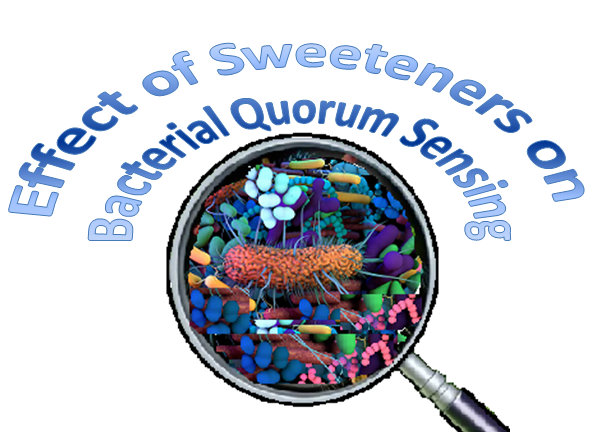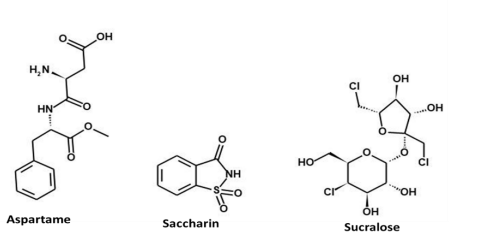Inhibitory effects of sweeteners on bacterial quorum sensing
 Artificial sweeteners are considered safe and beneficial to some people according to the FDA. However, there is a debate about their effectiveness in preventing diabetes and gain loss. Also, recent evidence remains inconclusive regarding their status and their effects on gut microbiota.
Artificial sweeteners are considered safe and beneficial to some people according to the FDA. However, there is a debate about their effectiveness in preventing diabetes and gain loss. Also, recent evidence remains inconclusive regarding their status and their effects on gut microbiota.
Gut microorganisms are indispensable for the normal metabolic functions of their human host. These microorganisms communicate within their community and regulate group behaviors via molecular quorum sensing (QS). The QS system enables bacteria to interact and adjust their gene expression based on population density. Most Gram- bacteria use the N-acyl homoserine lactone (AHL)-mediated QS systems.
New research by scientists in Ben-Burion University in Israel (published in Int. J. Mol. Sci. 2021, 22(18)) discovered that some artificial sweeteners hurt the gut flora to quorum sense. The study shows that aspartame, sucralose, and saccharin have significant inhibitory actions on the Gram- bacteria AHL communication system.

While the study indicates that the three artificial sweeteners are not bactericidal, they impact bacterial behavior. Using LasR (regulates bioluminescence) quorum-sensing receptor as a representative receptor for AHL indicated that the artificial sweeteners bind to the ligand-binding pocket of the protein. Resulting in possible interference with the proper housing of the native ligand and thus impeding protein folding. The data suggest that the three sweeteners, aspartame, sucralose, and saccharin, may affect the balance of the gut microbial community via QS-inhibition.
The present study demonstrates that aspartame, sucralose, and saccharin exert anti-QS activity by disrupting the AHL-based communication network in their model bacteria. Three less common sweeteners, acesulfame potassium (Ace-K), advantame, and neotame, do not have this effect.

The research demonstrated that the sweeteners inhibit the swarming motility of P. aeruginosa PAO1and that they express their inhibitory effects by interfering with the solubility of the protein. The authors speculate that these artificial sweeteners could interfere with gut microbiota homeostasis, thus promoting the progression of digestive diseases.
The study concluded that artificial sweeteners disrupt communication, indicating that artificial sweeteners may be problematic in changing the microbiome and potentially increasing disease risk. Artificial sweeteners can cause problems with digestion, and increase the risk of obesity and type 2 diabetes, and other health problems.
The authors complain that it may be difficult to estimate the concentration of artificial sweeteners in food products because manufacturers do not specify the quantity of these artificial sweeteners in products. Also, there is a need to understand better the mechanisms of action of these sweeteners and other related products on gut microbiota. The focus of this study was on a few bacterial models. It might not give a complete picture of the gut microbiota where trillions of different microbial species dwell together.
